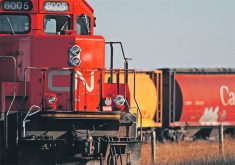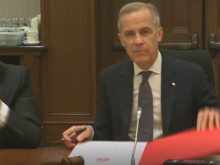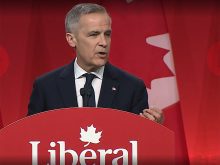Producers say the rebates offered by the federal government won’t fully cover the costs that they have to pay
Farmers struggling to get their crops harvested in Manitoba, Saskatchewan and Alberta will also pay more for drying those crops, thanks to the federal carbon levy.
While the federal carbon price offers relief for gasoline and light fuel oil costs used in tractors and trucks, there is no exemption for grain drying or heating.
The Saskatchewan Association of Rural Municipalities is tracking the costs associated with carbon pricing, including fees associated with grain drying.
“We’re concerned not only about the cost of drying, but the added cost the federally imposed carbon tax has put on producers,” said president Ray Orb.
Read Also

Farming Smarter receives financial boost from Alberta government for potato research
Farming Smarter near Lethbridge got a boost to its research equipment, thanks to the Alberta government’s increase in funding for research associations.
Additional fees from the carbon pricing scheme range from $2,000 to $4,000, depending on the size of the operation.
“We think that should not be there because farmers are already under a lot of duress dealing with the weather, they certainly don’t need any more taxes imposed on them,” said Orb.
It’s an issue his group, and others, will continue to raise with the newly elected minority Liberal government.
Saskatchewan’s premier complained to reporters about grain drying costs after Prime Minister Justin Trudeau’s re-election, saying costs are “significant.”
He said he received a text from a farmer who has dried more than two million bushels of grain.
“I don’t know what he’s getting back in his carbon tax rebate, but it most certainly isn’t going to offset the carbon tax that he’s going to spend in one month drying his product.”
Federal background documents on the carbon tax say an average family of four in Saskatchewan can expect to receive around $903 in 2020, with another 10 percent available to those in small or rural communities.
Saskatchewan’s government expects the total carbon tax costs for grain drying for individual producers to be in excess of the rebate they receive.
But the provincial government is not requesting any relief funding to assist farmers with the added costs this year. Instead, the Saskatchewan government is reminding farmers that crop insurance assists with costs from quality and yield loss.
Fuel used for grain drying is also an eligible expense under AgriStability.
Keystone Agricultural Producers noted in a statement that the “Made in Manitoba Climate and Green Plan” exempted grain drying from carbon costs, but that plan was scrapped last October and the province now falls under the federal plan, meaning that similar to Saskatchewan and Alberta, Manitoba producers are not exempt from paying carbon costs for drying grain.
KAP said it will continue to lobby for an exemption at the federal level.
It is unknown how much revenue will be collected by the federal government as a result of grain drying costs because the finance ministry does not make that information available.
“By law, the Government of Canada must return all direct proceeds from the federal carbon pollution pricing system to the province or territory of origin,” the government said.
In Alberta, Saskatchewan and Manitoba, proceeds are largely being returned directly to individuals at tax time through the carbon rebates.


















